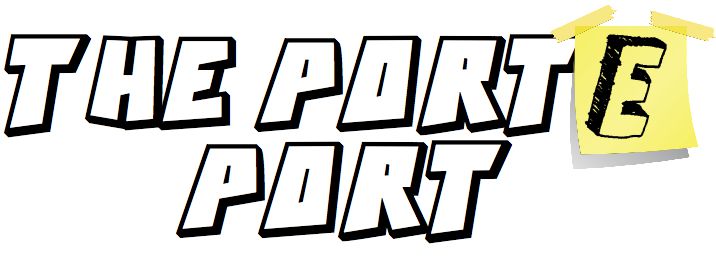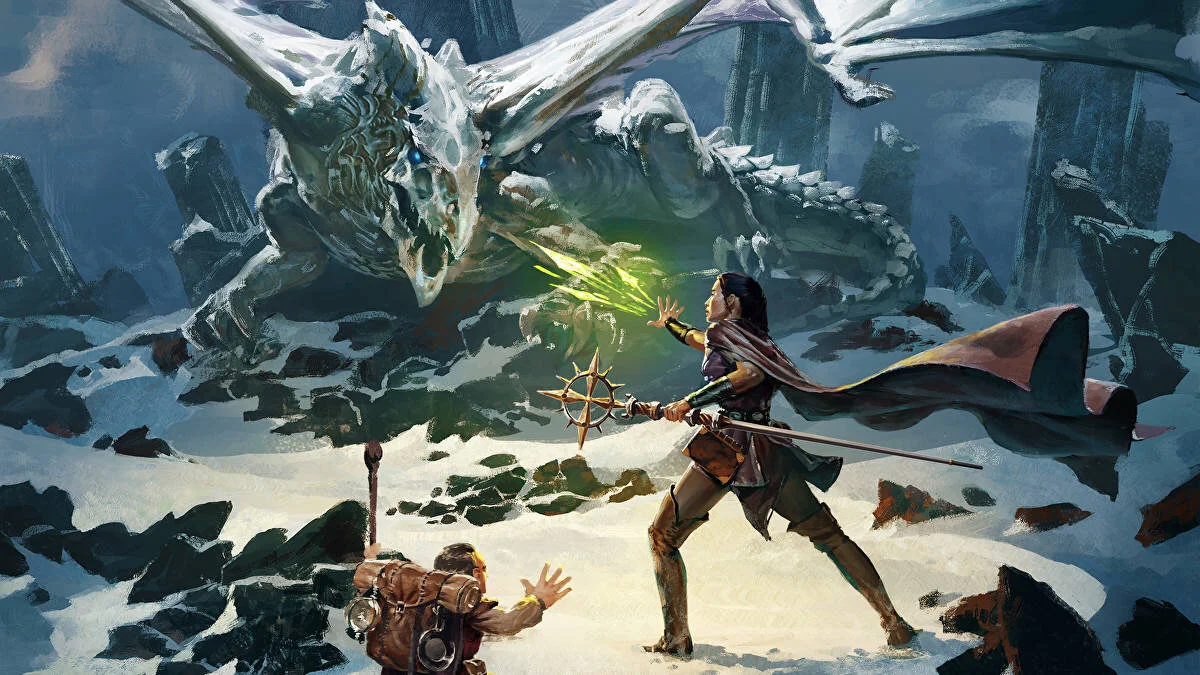The Simple Guide to Creating Magic Systems in Fantasy
Imagine a terrible day at work.
Probably not a huge leap of the imagination, I know.
But, let’s say you’ve been answering calls, in meetings, dealing with customers, whatever, and you’re out of energy.
You get home and slump down into your couch/favorite chair.
It’s the greatest feeling in the world after a brain-frying workday.
You just want to unwind.
And you realize–as soon as you feel comfortable–that the remote is on the other side of the room. So, you sit there staring at a blank TV screen.
How many times have you reached for the remote, hoping this was finally the time it would fly into your hands?
Telekinetics…
The Force…
Magic…
It sure would be nice to have that ability, even if it meant using it in the most mundane ways possible.
If you’re writing a fantasy story, though, you might have a character that can slump down after a terrible day and bring everything they need to themselves.
Magic in the world would change how everything is done. (Which is why it’s such a critical piece of good fantasy worldbuilding.)
And it’s also why creating magic systems in your fantasy book can be an extremely intimidating prospect.
The Common Fears Creating Magic Systems in Fantasy
You might think (because I think this too):
What if my magic system is boring?
What if there’s a ton of plot holes that I didn’t even think of?
What if someone else already made a magic system like this?
What hasn’t already been done?
If you have some of these fears, I have some good news for you:
Your fantasy story’s magic system doesn’t need to be super unique or ingenious for it to hold your readers’ attention and imagination.
How?
All you need to do is think about the cornerstones of what makes a good magic system in fantasy.
Think about the fantasy books, movies, games, whatever, that you love, and think about how they handle magic.
You just need to follow this simple guide that will help you build a magic system that feels real and keeps readers invested.
By the end, you’ll have a basic outline that you can flesh out and use to create an entire magic system.
So answer these questions for your story:
How Do Characters Use the Magic System in Your Fantasy World?
Pocket sand! My favorite spell!
There has to be some kind of process to your magic.
Your characters can’t just fart, and magic happens.
I mean...maybe they can. They would still have to be gassy, though, for it to happen. So, that’s still a process–a chaotic process–but a process nonetheless.
Imagine Taco Bell being the mana recovery of your fantasy world…
The magic users in your world need to do something, say something, think something, for the magic to happen.
And, speaking of classic mana pools, what fuels the magic in your world?
That’s part of the process too. Your characters need to pull from something to fuel magic, even if it’s their own energy.
Once the proper process is in place, what does magic do?
Does it bring the remote over?
Or does it cast fireballs from the sky in a terrible display of pure power?
Or does it make rings always the perfect size for the wearer?
Once that magic starts coming out into the world, what shape does it take?
What does it physically look like?
Describing magic in detail is half the fun of writing a magic system. It’s what gives the fantasy genre the unique feel it has. It helps fantasy feel...well...fantastical.
Magic System Example: The Name of the Wind by Patrick Rothfuss
In Patrick Rothfuss’s fantasy series, magic is very mental, combined with physical objects, and the right words. There’s a ton of description surrounding how your mind has to be able to handle the stress of thinking of two things at once, or willfully binding things together.
What mental hoops, physical objects, motions, or phrases will your magic system require to work?
Who Gets to Be Magical in Your Fantasy Setting?
Once you have some initial ideas on what your magic looks like and how it works, you need to start thinking about the users.
Who gets to be magical in your fantasy world?
Is it anybody that takes the time to learn?
Is it only gifted people?
How rigorous is the training, and how long does it take to learn/control?
What are the magical users called?
Their abilities might make them unique in the world, and therefore, they might have certain opportunities others don’t have.
Or they might be outcasts thanks to that magic.
The world around them will react, and we’ll dive into that more later, but for now, be thinking about who gets access to this magic.
Magic System Example: Dungeons and Dragons
In D&D, magic is all over the damn place. It’s a wonder that the economy isn’t in total shambles. But, there are a few different kinds of magical users. Some learn magic through book smarts, others are born with it in their blood, while others find out how to use the more natural magic in nature. Then there are bards, who just sing, and magic seems to happen.
How do your characters have access, or are denied access, to magic in your fantasy world?
What is the Cost of Your Magic System?
This is the crucial question you need to ask.
There HAS to be a cost to your magic. If it can be used all willy-nilly, then there’s no weight to it. It becomes plot armor rather than interesting storytelling.
What does your magic take from the users or world around it?
Is it something that shortens the lifespan of magic users?
Perhaps it makes them lose their grasp on reality.
Maybe it’s exhausting to use and can leave users vulnerable when they use too much.
Or maybe it takes forever to conjure up a spell and must be prepared before things get bad.
There has to be a downside, otherwise, there’s no conflict in its use.
And conflict drives good storytelling.
You can’t have magic save you out of every corner you write yourself into. In many ways, you need to set the ground rules to your magic system and adhere to them yourself.
Your reader will roll their eyes, breaking their immersion if the magic system takes tolls on your characters until it’s too inconvenient.
Magic System Example: The Lightbringer Series by Brent Weeks
The magic users in the Lightbringer Series are called drafters. They draft light and create magic based on the color they can draft. But they only have so much drafting in them. The more they use magic, the closer they become to creating monsters of themselves. Once they go over the limit, they lose their sanity. On top of that, too much drafting at one time can give users light-sickness that sounds kind of like the worst hangover you’ve ever had.
What makes magic difficult or dangerous to use in your fantasy story?
How Does Magic Affect the World in Your Fantasy Setting?
Magic is a pretty big deal, even in high-magic settings where it’s common.
It would be strange if the world around your magic system wasn’t affected in some way.
Cultures would react to it.
How do your different governments and people view magic?
Are they afraid of it, or do they revere its users?
Does it center around religion, or is magic heretical?
Your magic system might be more than just a socio-economic concern. Has it physically altered the world? There might be a region of the world that doesn’t abide by the laws of nature because of some magic gone wrong.
And how has magic developed over time? Your world might be drastically different than the one a few decades earlier because of magical advancement.
Do people know the origin of magic, or are there conflicting stories?
The users of magic might be treated differently based on the culture they are interacting with.
Maybe magic is reserved for the rich who can afford magic college (the tuition fees are outrageous). The rich might see magic users as the norm, but lower social classes might marvel at the most basic tricks.
And, keep in mind, the more powerful your magic, the more it will affect the world around it. If that magic poses great dangers, there’s going to be some kind of discourse about it in your world. It would feel shallow if there wasn’t!
Magic System Example: The Dragon Age Series
In Dragon Age, the world revolves around magic. Magic users are under close vigil because their abilities attract literal demons, and they are constantly at risk of possession. (There’s the magic cost). Those that have escaped the super strict system are labeled heretics and are deemed dangerous. This creates a considerable amount of tension, and entire storylines in the game revolve around that tension.
Your whole story could be about how the world reacts to the magic system in your fantasy book.
Bonus Example: Magic Systems in Low-Magic Worldbuilding
Even if you barely have magic in your fantasy setting, you need to flesh it out.
Take The Lord of the Rings, for example. It might be the fantasy all other fantasy is compared to, but there’s very little magic in it, funny enough. The magic that is there is extraordinarily subtle, and Tolkien uses that as story points.
The very unmagical race of Hobbits is our point of view in the story. When the Fellowship gets to Lothlorien, maybe the most magical place in Middle Earth at the time, the Hobbits are bewildered. They see Galadriel as a being of great mystery, power, and magic.
And she sees what they call “magic” as normal. It’s simply the great craft of the elves that seems magical to ordinary folk like Hobbits. It adds a little nuance to the world.
So even in your low magic setting, the world will react to what’s there. (Even if the magic isn’t really magic at all).
What Your Fantasy Magic System Really Needs to Be About
No matter how unique your magic system is…
Or how intricate the design...
Or how vivid your descriptions of it are…
Your magic system is ultimately there to tell a better story.
It’s all about your storytelling.
Magic pulls the reader into the world and makes them feel like they get to escape reality for just a little bit.
It’s there to make your characters feel special and powerful.
It’s there to weave deeper themes into the story.
And it’s there to help test your characters and force them to grow (or fail).
Story is about change. Your magic system will change your fantasy world’s politics, religions, and characters. Use that to drive conflict in your story.
If magic is simply there to look cool, you probably need to rework it.
How does your magic system drive your story?
That’s the most important question you have to answer.
And once you do, you have the foundation for something really special.
Want more fantasy storytelling advice? Sign up for my newsletter, and let’s geek out about Lord of the Rings, Star Wars, and Zelda while diving into what makes a great story. Click below to start your journey to making more immersive stories:












